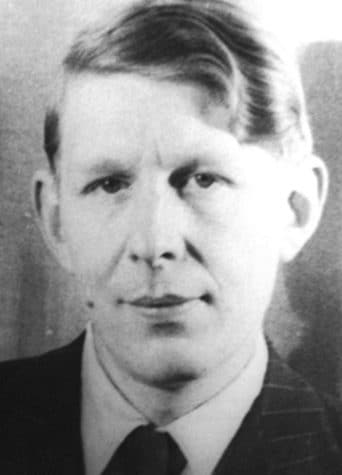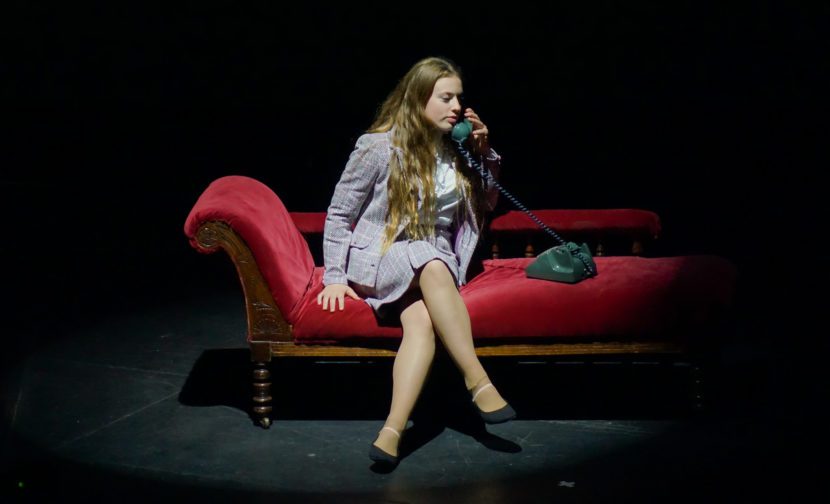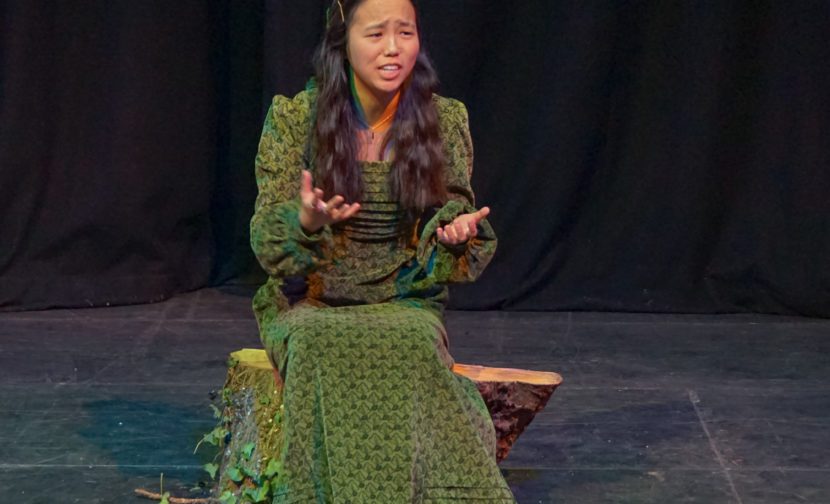Drama and the Performing Arts promote self-confidence; co-operation and inventiveness encouraging and supporting everyone to explore and appreciate their own ideas and creative freedom of expression.
Drama is part of the Year 9 curriculum, and is a popular option at GCSE, with further opportunities to continue into the Sixth Form. Throughout the department the emphasis is on encouraging a high level of independence, Drama students are encouraged to be active participants in the creative process, finding their place within a team, taking risks, and daring to fail, practically realising their own ideas and recognise the achievements and creativity of others.
Theatre trips, workshops and the opportunities to talk and work alongside theatre professionals are crucial elements in the teaching and learning of theatre, which as a living art form is constantly changing. The trends and fashions of current practitioners form the basis of much of our Sixth Form work, which then influences the younger students keeping the work fresh and innovative across the age range.
Pupils have many opportunities to participate in our school productions each year. The opportunity to take centre stage and perform as a principal or a member of a committed chorus in a musical on The Auden stage is something that is seen by many as an essential part of the Gresham’s experience. Find out more about co-curricular drama here.
Theatre is, as influential theatre practitioner Bertolt Brecht famously said ‘not magic but work’ though the rewards are undeniable and though we work hard in rehearsal, we play hard too. Former pupils from the last ten years are currently studying at Central School of Speech and Drama, RADA, LAMDA and Arts Ed to say nothing of the extraordinary high profile career of award-winning actress Olivia Colman.
- YEAR 9
Pupils in year have a lesson a week during which they are introduced to Drama skills and a toolkit of techniques and approaches for creating their own performances. They explore the varying roles in theatre from actor to designer and technician. This establishes a foundation of skills and techniques on which to draw from as they begin to create and evaluate their own work. Pupils learn how an actor prepares for a role, experimenting with different character types and performance styles, as well as learning the skills of a designer by creating their own set, costume, sound and lighting designs. Pupils begin to build knowledge of subject specific vocabulary giving them a shared language when creating their own work and evaluating performances. They are given the opportunity to work independently within a given framework to encourage good studio practice, as well as developing key teamwork skills through group work. Pupils’ freedom of expression will be encouraged as well as positive critical appreciation of their own strengths and weaknesses as a student of drama. Furthermore, they will also develop the ability to recognise what makes an effective piece of theatre for an audience. At the end of the year they will put the skills learned into dramatic practice as they create their own production for a live audience.
- GCSE DRAMA
Exam board: AQA
GCSE Drama is a lively and creative course designed to balance the practical and academic study of Drama. Pupils work together to understand and experience for themselves the roles and responsibilities of a theatre company. Working as part of a creative team of actors, directors, designers and technicians, pupils build confidence and develop skills in communication, cooperation and performance. The course enables pupils to work imaginatively and develop their understanding of how to create thought-provoking and well-made theatre. In addition to acting and directing, pupils will be encouraged to consider a range of design and technical skills including stage lighting, sound design, set design, stage management, make-up, costume and puppet design.
The course is an excellent preparation for A level or IB Theatre, which we offer in the Sixth Form, and provides an excellent foundation in creative, practical performance and production skills. With the focus on working imaginatively, collaborating creatively and communicating effectively, GCSE Drama provides a solid foundation for further studies in Drama and Theatre with a skills set that opens up many vocational opportunities.
The course is divided into three components, which includes the study of a set text, audience experience of live theatre, devising original work and scripted performance.
Component 1: Understanding Drama Written Exam, 1 hour 45 minutes, 40%
Component 2: Devising Drama Devising Log & Devised Performance, 40%
Component 3: Texts in Practice Performance (2 extracts) to examiner, 20%
- A LEVEL DRAMA
Entry requirements: None required, though a good pass at GCSE Drama, evidence of active participation in productions and a genuine enthusiasm for all aspects of the subject are expected.
Pupils of Drama often consider Drama College and University to study Theatre and Performance as well as Drama in Education and English. They are also successful moving on to study and work in all areas of the arts and humanities, film and media, the leisure industry and tourism, journalism, the law and social work. Indeed any area of work that requires a confident presentation, a creative approach to problem solving, an independent work ethic, assured team players and leaders with empathy and humanity
A level Drama is for pupils who enjoy creating their own work, reading plays, watching and exploring the work and ideas of theatre makers, and taking an active part in the practical exploration of theatre in performance as actors, directors and designers. The course makes full use of our excellent facilities such as the Auden Theatre.
The subject content for A level Drama and Theatre, is divided into three components. In the practical components, pupils may specialise in performing, lighting, sound, set, costume, puppets and/or directing.
Component 1 Drama and Theatre:
40% of A level Pupils study two set plays and analyse and evaluate the work of live theatre makers.How it’s assessed: Written exam: 3 hours 80 marks. Written exam: 3 hours 80 marks
Component 2 Creating original drama: (Practical)
30% of A level pupils devise and contribute as performer/designer or director to the performance of an original piece of theatre influenced by the work and methodologies of one prescribed practitioner.How it is assessed:
Pupils produced a working notebook (40 marks) to accompany their devised performance (20 marks). The work is marked by teachers and moderated by AQA.Component 3 Making theatre: (Practical)
30% of A level The work is marked by AQA
Pupils practically explore and interpret:
Three extracts each taken from a different play. The methodology of a prescribed practitioner must be applied to ExtractHow it’s assessed: Performance of Extract 3 (40 marks) Reflective report (20 marks) 60 marks.
- IB THEATRE
Entry requirements: None required, though a good pass at GCSE Drama, evidence of active participation in productions and a genuine enthusiasm for all aspects of the subject are expected.
Pupils of Drama and Theatre often consider Drama College and University to study Theatre and Performance as well as Drama in Education and English. They are also successful moving on to study and work in all areas of the arts and humanities, film and media, the leisure industry and tourism, journalism, the law and social work. Indeed any area of work that requires a confident presentation, a creative approach to problem solving, an independent work ethic, assured team players and leaders with empathy and humanity.
IB Theatre is for pupils who enjoy creating their own work, reading plays, watching and exploring the work and ideas of theatre makers, and taking an active part in the practical exploration and creation of theatre in performance as actors, directors, designers and technicians. Pupils are based in the Auden theatre and make full use of our excellent facilities.
The Core Syllabus explores:
Staging play texts, Exploring world theatre traditions, Collaboratively creating original theatre and Performing theatre theory.
Assessment:
There are 4 tasks for HL pupils and 3 for SL
Task 1 is externally assessed and Task 2, 3 and 4 are internally assessed.
Task 1: Production Proposal (SL 30% and HL 20%): you choose a published play text and formulate a vision for the design and theoretical staging of the entire play text for an audience.
Task 2: Research Presentation (SL 30% and HL 20%): you plan, deliver and video record an individual research presentation (15 minutes maximum) in which you provide evidence of your academic and practical exploration of a world theatre tradition.
Task 3: Collaborative Project (SL 40% and HL 25%) you collaboratively create and perform an original piece of theatre (lasting 7–10 minutes maximum) created from a starting point of your choice. Your piece is presented to an audience as a fully realised production.
Task 4: Solo Theatre Piece (HL 35%) You research a theatre theorist you have not previously studied, identify an aspect(s) of theory and create and present a solo theatre piece (4-7 minutes) that demonstrates the practical application of this theory
Theatre Aims
To enable you to:
- Inquire into theatre and its contexts
- Develop and practically apply theatre performance and production
- Create, present and evaluate theatre work both independently and collaboratively
- Acquire the perspectives and intentions of an internationally minded theatre-maker
- Understand, appreciate, and explore the relationship between theory and performanc
ALUMNI
ALUMNI
Sebastian Shaw
Kenwyn 1919 – 1922
Sebastian Lewis Shaw (29 May 1905 – 23 December 1994) was an English actor, theatre director, novelist, playwright and poet. During his 65-year career, he appeared in dozens of stage performances and more than 40 film and television productions. Shaw made his acting debut at age eight at a London theatre. He studied acting at Gresham’s and the Royal Academy of Dramatic Art. Although he worked primarily on the London stage, he made his Broadway debut in 1929. Shaw was particularly known for his performances in productions of Shakespeare plays, which were considered daring and ahead of their time. In 1966, he joined the Royal Shakespeare Company, where he remained for a decade and delivered some of his most acclaimed performances.
In 1983, he appeared in the third instalment of the original Star Wars Trilogy, Return of the Jedi, starring as the redeemed Anakin Skywalker, as well as Skywalker’s ghost in the original 1983 theatrical release of the film.
Sienna Guillory
Oakeley 1991 – 1993
Actress – starred in Luther.
Miranda Raison
Edinburgh 1990 – 1991
Actress – starred in Night flyers/ Dr Who.





